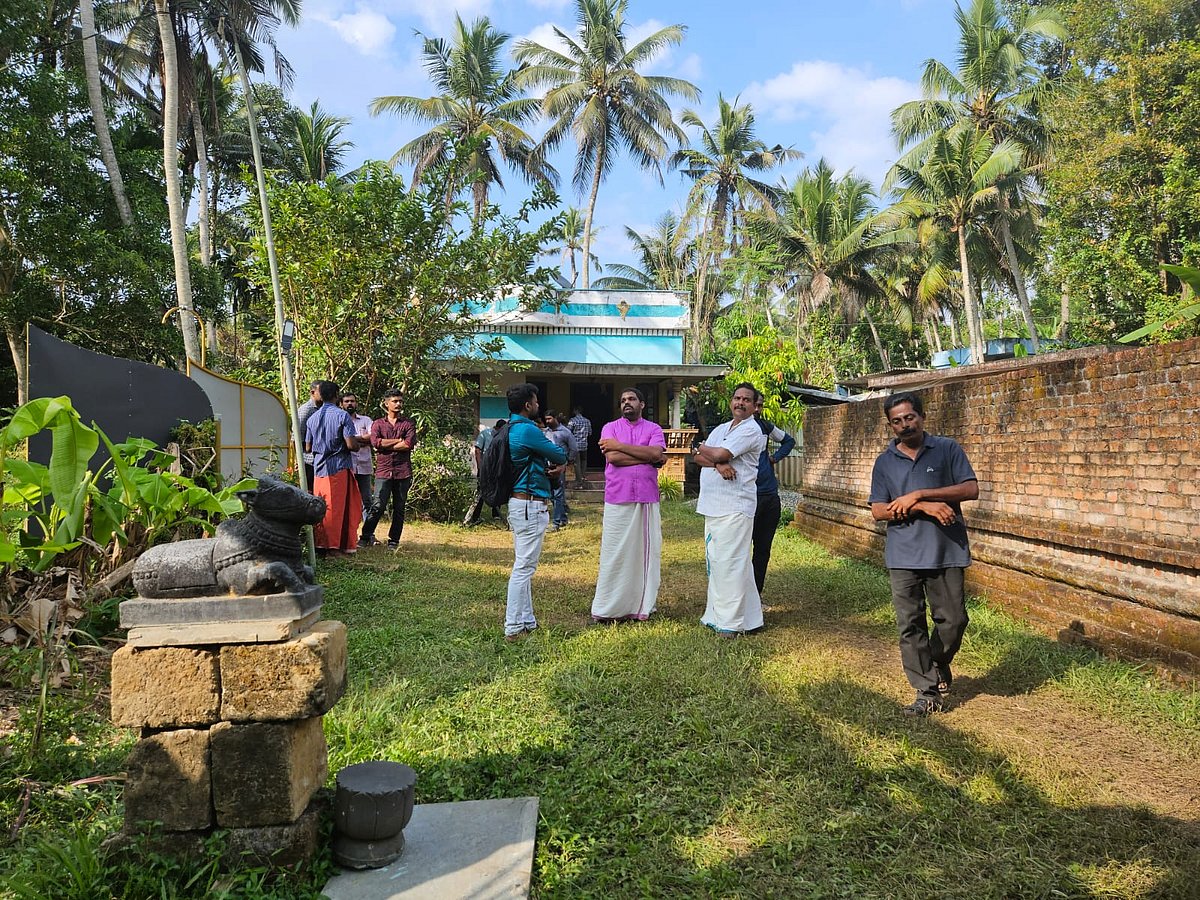 |
|
The recent death of 72-year-old Gopan Swami in Kerala, India, has ignited a controversy and a thorough police investigation. Initially reported as a missing person case, the situation escalated when Swami's family claimed he had achieved 'samadhi,' a spiritual state of liberation, and subsequently buried him under a concrete slab. This claim, however, prompted a legal battle and the exhumation of Swami's body, revealing a complex situation rife with religious beliefs, legal procedures, and unanswered questions surrounding the cause of death.
The exhumation, carried out on January 16th, was preceded by a legal challenge from Swami's family, who sought to prevent the authorities from disturbing the burial site. The family's argument centered on their belief that Swami's death was a voluntary spiritual ascension. However, the High Court ultimately ruled in favor of the exhumation, citing the family's failure to register the death or obtain a death certificate. This omission triggered a police investigation into the circumstances surrounding Swami's demise, treating it as a case of suspicious death. The court's decision highlighted the importance of adhering to legal processes, even in the face of strong religious or cultural beliefs.
The preliminary post-mortem examination yielded inconclusive results, leaving the cause of death undetermined. Doctors involved in the autopsy stated that they were unable to definitively conclude whether the death was natural or unnatural. This uncertainty necessitates further investigations, including the analysis of histopathological, chemical, and forensic reports. These reports will play a crucial role in establishing the facts of the case and determining whether any criminal wrongdoing occurred. The uncertainty surrounding the cause of death underscores the complexity of the case and highlights the need for meticulous investigation before any definitive conclusions can be drawn.
The family's reaction to the investigation and exhumation has been characterized by resistance and accusations of harassment. Gopan Swami's son, Sanadhan, expressed his grief and frustration over the manner in which his father's death was being handled, viewing the actions of the police and authorities as disrespectful to his father's spiritual beliefs. His wife, Sulochana, echoed this sentiment, emphatically stating that it was 'Lord Shiva,' not a doctor, who determined his death. These statements highlight the clash between legal procedures and deeply held religious convictions, adding another layer of complexity to the already intricate circumstances.
The exhumation itself was a significant event, drawing a large police presence and three forensic teams. This significant security deployment underscores the sensitivity of the situation and the need to prevent potential conflict or unrest. The scene, where Swami's body was found sitting amidst ash, incense, and aromatic substances, presented a striking juxtaposition between the spiritual beliefs of the family and the clinical approach necessary for a thorough investigation. This visual contrast further emphasized the complexities of the case, blending elements of faith, mystery, and legal investigation.
The case raises several significant questions about the intersection of religious beliefs and legal processes. How should authorities respond to claims of 'samadhi' or similar spiritual explanations for death? What are the limitations of medical examinations in determining the cause of death in such circumstances? Should cultural and religious sensitivities be accommodated within the framework of legal investigations? The Gopan Swami case serves as a compelling example of these challenges, prompting broader societal discussions on balancing legal procedures with the rights and beliefs of individuals and communities.
The ongoing investigation holds immense importance in determining whether foul play was involved in Gopan Swami's death. The results of the pending forensic reports will be crucial in deciding the future course of action and potentially resolving the conflicting narratives surrounding his death. The family's persistence in upholding their belief in Swami's spiritual ascension will undoubtedly continue to be a factor in the ongoing process. The outcome of the case will set a precedent for how similar cases might be handled in the future, offering valuable insight into navigating similar situations where religious beliefs and legal requirements intersect.
Beyond the immediate legal implications, the case highlights broader cultural and social nuances within Kerala society. The widespread media attention and public interest demonstrate the sensitive nature of religious beliefs and the potential for conflict between tradition and legal frameworks. The case serves as a reminder of the challenges involved in reconciling diverse perspectives and ensuring a fair and just outcome in circumstances where deeply held beliefs collide with legal processes. This will require careful consideration and thoughtful decision-making to balance competing interests and values.
Source: Cause of death still unclear after postmortem in Kerala ‘samadhi’ case
